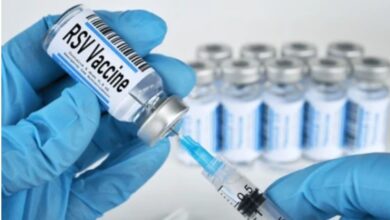DIET DRINKS NOT HEALTHIER

Have you been to McDonald’s and watched people order a Big Mac, large fries, and a chocolate chip cookie then top off the order with a large Diet Coke? In their mind, they are ignoring the 1000 calories they’re consuming in the food items they ordered and patting themselves on the back for drinking a Diet Coke with zero calories. Oh, how health conscious they are!
Well, all those people are kidding themselves. Diet drinks are not as harmless as was once thought and a study of 124,000 participants in the UK says so. Yes, they have no calories, but a bigger concern has emerged from this investigation. The problem is diet soft drinks have been linked to causing a fatty liver. The term the article uses is a steatotic liver. What’s a steatotic liver? Well, “steat” is the Greek root for “fat.” So, a “steatotic liver” is a fatty liver—a liver in which a lot of fat has accumulated in and around the liver cells. Sometimes, so much fat accumulates that normal liver cells are crowded aside, compressed, and die forming scar tissue that shrinks the liver. This scarred liver then develops cirrhosis, a chronic disease that results in liver failure and death.
In the study referenced here, over a 10-year period of time, people without liver disease were given sugar-sweetened beverages (SSB’s) or low-, or non-sugar-sweetened beverages (LNSSB’s) every day. The point of the study was to see what ingestion of these beverages did to the liver over time. What they discovered was that depending on the amount of these beverages consumed, fat deposits accumulated in the liver causing a fatty liver. The amount of these beverages consumed was recorded, too—none, one serving per day, or more than 1 serving per day. The actual outcomes are reported below.
Patients who consumed more than one serving per day of a low-sugar, or non-sugar sweetened beverages had a 60% greater risk for a fatty liver.
Patients who consumed more than one serving per day of a sugar-sweetened beverage had a 50% higher risk of fatty liver.
Consuming only one serving/day of low-or non-sugar sweetened beverages was also associated with higher risk of fatty liver.
In fact, “diet drinks are linked to a higher risk for fatty liver, more so than are high sugar drinks.”
The “take home message” here is the following: The high content of sugar in a sugar-sweetened beverages causes high blood sugar, increased insulin levels, weight gain, and increased uric acid levels, but they have a lower risk of causing a fatty liver than do diet soft drinks. “Diet” drinks are linked to causing a fatty liver. The reference did not, however, state how or why this happens nor does it say with what frequency this phenomenon occurs.They did state the Body Mass Index of the patient contributes to metabolic changes which are influential in developing a fatty liver. Also, artificial sweeteners, aspartame and sucralose, are presumed to play a role.
There are two preventive solutions for this problem:
- limit the intake of both sugar and non-sugar-sweetened beverages.
- Drink only water instead.
It’s definitely time, now, to begin avoiding sugar and non-sugar containing beverages. Fatty deposits in the liver accumulate slowly and steadily, but don’t cause symptoms until late in the disease. When you find a fatty liver, it’s often too late to do anything about it. And it usually is worse than you expect. Drinking plain old boring water is best for all of us.
Reference: Brooks M. Diet Drinks Harder on the liver than sugary drinks. Medscape 2025 October 9.
Wu Y, Tan Z, et al. Association of diet soft drinks consumption and metabolic dysfunction-associated steatotic liver disease. BMCPublic Health 2023; 23:2286




